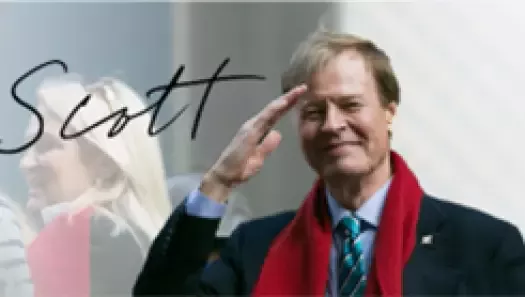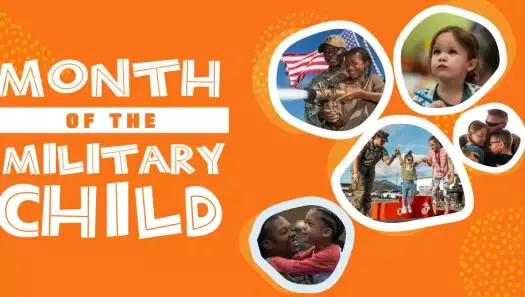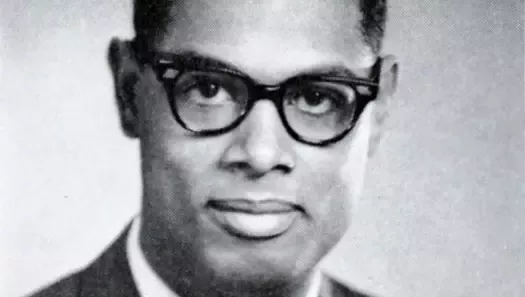WeSalute Awards
TopVet: Brian Armstrong

Marine Corps veteran Brian Armstrong is a transitioning veteran success story. From military recruiter to Lead Business Execution Consultant Program Manager for Wells Fargo, he has made the jump from service to success in the corporate world. Armstrong is also Chairman of the Board for Vets2Industry, which matches vets with military-friendly employers.
Armstrong was born in El Paso, TX but spent some of his childhood in Kansas and graduated from high school there. His grandfather served in the Army, and he comes from a family of public servants. “It was natural to want to serve,” he said. While working at Walmart as a teen, a military recruiter came through his line and by 11pm that evening, he was taking the initial entrance exams to enlist. “I felt it in my gut that this is what I want to do. The recruiter didn’t mess around.”
He went to boot camp in San Diego, CA, deploying twice to Iraq, to include the initial invasion in 2003-2004. Following his deployments, he had the opportunity to be stationed in the National Capital Region as well as serve as a Marine Corps recruiter in Frederick, MD.
“That was the pivotal moment for me as somebody that was young and really looking for something new and challenging,” he said. Named recruiter of the year within his region, he served nearly 4 years in the role. Despite initially envisioning himself as a drill instructor, recruiting allowed him to experience his “love connecting with people and different walks of life.” Missing the brotherhood of being surrounded by other Marines he returned and finished his career at Camp Pendleton, CA.
 Transitioning in 2015, Armstrong landed an opportunity in Washington, DC and agreed to hold the role for 2 months while he completed his transition and moved across the country. “In the military, you get your “job offer” and you sign a four or five-year contract, so it never crossed my mind that I had to worry about the opportunity. I thought I was set, I’m good. I stopped looking for a job.” He moved back to the National Capital Region a week before the job began. Then the call came: they had to retract the offer.
Transitioning in 2015, Armstrong landed an opportunity in Washington, DC and agreed to hold the role for 2 months while he completed his transition and moved across the country. “In the military, you get your “job offer” and you sign a four or five-year contract, so it never crossed my mind that I had to worry about the opportunity. I thought I was set, I’m good. I stopped looking for a job.” He moved back to the National Capital Region a week before the job began. Then the call came: they had to retract the offer.
“Being someone who had deployed to a combat environment, I didn’t think there was anything else that could shake me to my core. But it was that. I thought they were calling to welcome me. As much as it hurt, that moment shaped me to really make sure we take care of veterans. Not just veterans, but people. Be a good human. Communicate.”
Thankfully, he soon landed a position as a recruiter for Hilton, recruiting housekeepers and dishwashers. While it is not the most exciting job on the surface level, he credits this role and his leader for his success today. “The job is important, but the leader is really what is going to set the tone for your future. You’re interviewing the leader as much as you are the job. Though his leader at Hilton had a limited understanding of the military, he taught him that engaging stakeholders at all levels, understanding feedback and implementing is what lead to success “We need to take care of all internal employees and managers as much as our candidates.” I carry that to this day. We need to execute with excellence and bring value to their world at all times.”
Now Armstrong works at Wells Fargo as a program manager, running a portfolio that engages with both external and internal talent. One of the main programs he leads is Wells Fargo’s National Apprenticeship Program that leverages military skill sets with professional roles, the “Julie Scammahorn National Military Apprenticeship Program.” It is designed to attract, hire and prepare military talent to step into valuable career opportunities over one and two year programs.
He also leads several internal facing programs to support morale amongst veteran and military spouse employees, connecting new military talent to a fellow veteran in the organization to help them navigate the corporate space during onboarding. Wells Fargo’s military coin has been in mint since the 1950s and the bank is about to mint their 4th generation to show the company’s respect and recognition of the military.
“Military talent and spouses are highly valued here at Wells Fargo,” he said, but advises those interested in transitioning to the financial industry to do their due diligence. He noted, “it isn’t always a 1-to-1 transferable skill set, but just because you don’t have financial experience doesn’t mean you are not qualified for the role. Perfect example, those that might have been with leadership roles in the military, you’re constantly advising. You’re always consulting and educating the next person, from your leadership or a subordinate.”
“As Veterans and Military Spouses, often we sell ourselves short. Just because you’re a transportation or communications professional in the military doesn’t mean that’s what you must do after transitioning. Organizations like Wells Fargo are looking for military talent but what they value and what makes us successful is our ability to adapt, communicate effectively, and stand up in the face of adversity. We find solutions, deliver, and overcome challenges”



